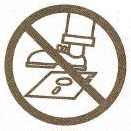|
Paramemetic posted:When we die, this creates the immediate cause for consciousness to manifest elsewhere (rebirth) and our merits and so on create the cooperative cause that dictate where the consciousness manifests. It cannot be said to be the same consciousness or the same person, but it is part of the same causal chain. Right, but my question is, what is the mechanism that allows this to occur? Some other religion might suggest that angels record your death, consult the akashic record, and cause a birth somewhere else as appropriate. That's a little silly, but at least it's an explanation. Let's say my karma ensures my death will lead to the birth of a cute puppy. How? I don't know if this seems like an irrelevant point but it's a major thing to me. It's the idea that the specific death of the illusory being I consider myself to be clearly leads to some other specific birth that does not make sense to me. Maybe its just a matter of wording: Paramemetic posted:This body dies, another body is born. If I change this to "bodies die, others are born" does that change its meaning to you? Because I can accept that in the plural, but not in the singular. If that doesn't make sense then I'm not really sure how to articulate what bothers me.
|
|
|
|

|
| # ? May 18, 2024 15:20 |
|
Prickly Pete posted:I'm on my phone but those look like the Jataka stories, which are part of the Pali canon. They detail the previous births of the Buddha. His realization of his previous lives is one of the three knowledges that came to him on the night of his enlightenment. Third Murderer posted:If I change this to "bodies die, others are born" does that change its meaning to you? Because I can accept that in the plural, but not in the singular. If that doesn't make sense then I'm not really sure how to articulate what bothers me.
|
|
|
|
What's a good Buddhist way to deal with problems like bedbugs? I don't have them, but I'm curious what the answers might be.
|
|
|
|
Third Murderer posted:Right, but my question is, what is the mechanism that allows this to occur? Some other religion might suggest that angels record your death, consult the akashic record, and cause a birth somewhere else as appropriate. That's a little silly, but at least it's an explanation. Let's say my karma ensures my death will lead to the birth of a cute puppy. How? Unfortunately the only answer I know for this, coming from commentary on the Bodhicharyavitara, is likely to be unsatisfying, being specifically that as an unenlightened being trapped within dependence on the skandhas, we can't really know the mechanism. More importantly, the mechanism of "how" is somewhat unimportant. Consider it like gravity, I suppose. There is speculation on the how, but any imputed determination would necessarily be lacking, itself being an imputation or appellation. The how is largely irrelevant, because the is is readily observable. The discussion is largely irrelevant, because the self that we say is reborn is empty, the reborn thing is empty, neither have any true, inherent reality. Both are simply things which have arisen or fallen, but neither are self-arising nor self-falling. Everything is cause and effect. If I drop a teacup, I need not attempt to speculate or imputate on why it has fallen to the ground, why it has shattered, why this or why that. It has fallen, it has shattered, and we can reasonably assume that such was a natural causal process. Further inquiry in fact complicates things. For example, with angels consulting the akashic records, whence come these angels? Whence come these records? Why do the angels consult it so? What format are the records stored in, PDF or DOCX? How did that specific angel come to read it on that day? And the answer is that all of that is emptiness too. If there are beings reading these things, then they too are arisen of emptiness through cause and effect. To be able to track causality like that is impossible with a limited mind dependent on sensory experience. It requires a mind of enlightenment, the combination of wisdom and emptiness. So if your karma ensures that a cute puppy will be reborn, why does this matter? Any discussion of the future is a discussion of non-reality, so any attempt to rationalize why a non-real event may occur is wrong concentration. quote:I don't know if this seems like an irrelevant point but it's a major thing to me. It's the idea that the specific death of the illusory being I consider myself to be clearly leads to some other specific birth that does not make sense to me. Maybe its just a matter of wording: Not really, because the distinction is purely arbitrary. A body dies, another body is born. Bodies die and are born all the time. There is causality to this. The thing is that any thinking about how I will be reborn is expedient in the relative reality but not in the ultimate reality. And in the relative reality, it doesn't matter if I conceive to myself that I might be reborn as another I that still maintains part of this seed consciousness or not. The relative reality where there are tables and coatracks and so on is very useful for our relative lives, and not at all important with an understanding of emptiness. So I mean, there's no problem with it being an irrelevancy, if you need to know that information I encourage you to meditate, contemplate, and read about it. I haven't gotten into that depth mostly because I practice a much more religious angle where to me "it happens out of emptiness" is totally reasonable and sufficient. Then again, to me "Achi Chokyi Drolma is literally a powerful enlightened being who will protect and aid practitioners of my lineage if asked" is entirely an okay thing. Others would think that's ridiculous, and that's cool, because it's not core essential Buddhism. The essence of Dharma is compassion and emptiness. The Four Noble Truths and the noble eightfold path are the elaboration of that. Anything beyond that is trappings. Live a good life. =] Razage posted:What's a good Buddhist way to deal with problems like bedbugs? I don't have them, but I'm curious what the answers might be. Depends on how you want to approach it. I'd probably just let them be and if they eat some of my blood, fantastic, I hope it's a good meal for them. Maybe other people would think that's hell of gross, and would try to vacuum them up in a way that they can be released. Still others would say that they cause suffering by their existence and if we kill them with truly compassionate intention, we're just sparing them accumulating negative karma from theft and causing suffering. I am interested to hear what thoughts people would give you here.
|
|
|
|
Paramemetic posted:
This is crucial. When metaphysical questions start to get technical and sidetrack us into losing sight of the core of the Dhamma, I find the simile of the arrow a good thing to refer to and reflect on. It is a short but very important sutta. quote:"It's just as if a man were wounded with an arrow thickly smeared with poison. His friends & companions, kinsmen & relatives would provide him with a surgeon, and the man would say, 'I won't have this arrow removed until I know whether the man who wounded me was a noble warrior, a brahman, a merchant, or a worker.' He would say, 'I won't have this arrow removed until I know the given name & clan name of the man who wounded me... until I know whether he was tall, medium, or short... until I know whether he was dark, ruddy-brown, or golden-colored... until I know his home village, town, or city... until I know whether the bow with which I was wounded was a long bow or a crossbow... until I know whether the bowstring with which I was wounded was fiber, bamboo threads, sinew, hemp, or bark... until I know whether the shaft with which I was wounded was wild or cultivated... until I know whether the feathers of the shaft with which I was wounded were those of a vulture, a stork, a hawk, a peacock, or another bird... until I know whether the shaft with which I was wounded was bound with the sinew of an ox, a water buffalo, a langur, or a monkey.' He would say, 'I won't have this arrow removed until I know whether the shaft with which I was wounded was that of a common arrow, a curved arrow, a barbed, a calf-toothed, or an oleander arrow.' The man would die and those things would still remain unknown to him. The Buddha generally deflected these kinds of questions away as unimportant and didn't make a lot of firm declarations of the sort. They do not lead to the cessation of suffering.
|
|
|
|
Razage posted:What's a good Buddhist way to deal with problems like bedbugs? I don't have them, but I'm curious what the answers might be. Oh god D: we had someone ask us a similar question at my sangha meeting. She had an ant problem and wanted to know the most humane way to get rid of them. Of course that's probably easier than bed bugs. Honestly, I'd probably just move and get new poo poo. Not really logical or feasible but if you're not keen on killing them that would be my next step. Another option is to use environmentally friendly pesticide stuff? At least you're saving the planet or something? My tradition is a joke compared to some of these guys in the thread, so I'm not sure if it's the most "Buddhist" response.
|
|
|
|
Shnooks posted:Oh god D: we had someone ask us a similar question at my sangha meeting. She had an ant problem and wanted to know the most humane way to get rid of them. Of course that's probably easier than bed bugs. I had this exact same problem last summer! I spent a lot of time thinking about how to fix it aside from squashing a lot of insects. I eventually figured out what they were eating, moved it, and spent a long time hiding things they could eat, and they left. I may have gotten lucky, but it worked. They only exist in your house if there is food for them to eat, so investing in containers they can't penetrate is a good option. And wipe your counters down. They'll eat anything. edit: I just realized the original question was about bedbugs. I have no idea. That would be a problem. People Stew fucked around with this message at 00:59 on Sep 1, 2013 |
|
|
|
Normally they nosh on you and get all up in your furniture, so I've heard that ditching your poo poo and moving on is the way to go regardless of humane intent. I have a question too actually; I tried doing a guided meditation for the first time the other night and boy was it tough keeping my head clear. Part of it though is I messed up my back and it hurts super bad in most positions. How's a guy deal with that sort of situation? The thing I listened to was pretty particular about pose and posture.
|
|
|
|
Meldonox posted:Normally they nosh on you and get all up in your furniture, so I've heard that ditching your poo poo and moving on is the way to go regardless of humane intent. I think you can change your posture if need be (at least until your back has healed). I'm still kind if new to this so I could be wrong here, but good posture is intended to aid meditation, I.e. a straight back helps clear the airways and encourages alertness. If you have an injury that makes sitting with a straight back uncomfortable to the point it hinders your meditation more than help it, it seems counter intuitive to continue in that position. I also have a posture related question. I've read cautionary tales about sitting full lotus only if your flexible enough to do so, but nothing seems to ever go into what is flexible enough. I can sit full lotus but to get into position I normally lift my foot onto my leg with my hands. I can stay full lotus comfortably for quite a while, I tend to meditate for 20 minutes at a time and have noticed that my legs have fallen asleep by the time I'm done, but I don't experience any real discomfort, am I safe to carry on like this? Also I've listened to a Gil Fronsdale talk about meditation and he says there are benefits to sitting full lotus over half lotus and Burmese style, but doesn't go into those benefits, can anybody tell me what they could be?
|
|
|
|
I'm on my phone again so I can't look up specific sutras, but the Buddha himself discusses meditation in the "4 positions": there is standing meditation, walking meditation, seated meditation, and meditation where you are laying down. All four are viable and productive. If you are experiencing back pain, sitting in a chair while meditating is completely fine. There are several people at my center who are older and sit entire 40 minute sessions on benches. Don't worry about how you are seated too much. I never sit full or half lotus. I sit Burmese style. As long as you are doing what you need with you mind, you are on the right track. And walking meditation is a great way to change things up. I strongly recommend looking into it.
|
|
|
|
To be honest, I haven't really noticed a difference in the quality of my meditation if I sit on the floor or sit in a chair. Although, I will say that although my back hurt at first while sitting on the floor for a 30 minute session it's improved a lot in the last few days. I think I need to investigate a better cushion though because my butt and legs will go numb after a while and that's disturbing. I did some guided Metta meditation from Audio Dharma the other day and it was a very powerful experience. Has anyone else encountered this? For my own answer to the Bedbugs: I would probably still fumigate as a realistic answer. I'd still wish them well if they're not all up in my stuff but I need sleep to function properly and there's not many feasible options (like throwing out my bed) right now. Hopefully it'd be less of an issue when I am able to downsize all my stuff in a couple of years and go from owning a condo to renting a room. I could get a cheaper futon or something and then throwing out the mattress would be less of an issue because it'd be easier to replace.
|
|
|
|
When I meditate, I have to do it on the floor in some sitting position. If I try to do it laying down or sitting in a chair, it just feels like I'm in video-game playing position or sleeping position.
|
|
|
|
I meditate however I feel comfortable. Isn't part of meditation being relaxed? Some mornings I sit in half-lotus, some mornings it's a chair, sometimes I lie on the couch.
|
|
|
|
Shnooks posted:Oh god D: we had someone ask us a similar question at my sangha meeting. She had an ant problem and wanted to know the most humane way to get rid of them. Of course that's probably easier than bed bugs. I wonder about the case of animals that can only feed on blood - getting rid of your stuff either causes them to die from starvation or cause another being to be sucked of its blood. For example, a homeless person who finds your old bed. Or even an animal, like a cat or dog. Is suffering of an animal preferable to human? I have no idea. I live in a tick-infested area and my cats frequently come carrying some unwanted passengers. I usually remove the bloodsuckers and kill them immediately. I'd lie if I claimed I don't feel any revulsion towards them, so it's probably not the most merciful thing to do.
|
|
|
|
If you kill them just be aware of your actions and try to reduce further killing, that's all. It's all about mindfulness. You're not blindly smooshing ticks for the sake of pleasure or because you give no fucks - of course you don't want to harm any living critter, but sometimes you just have to for whatever. I kill a lot of stuff at work - ticks, fleas, all sorts of parasites. I participate in euthanasias. I just try to remain mindful.
|
|
|
|
Meldonox posted:Normally they nosh on you and get all up in your furniture, so I've heard that ditching your poo poo and moving on is the way to go regardless of humane intent. Try blue icepacks for your back, and a comfy padded chair. I fell off a scaffold 30+ years ago and it's done it for me. Shnooks posted:If you kill them just be aware of your actions and try to reduce further killing, that's all. It's all about mindfulness. You're not blindly smooshing ticks for the sake of pleasure or because you give no fucks - of course you don't want to harm any living critter, but sometimes you just have to for whatever. Good. If you're so lacking in common sense that you have to go to the artifice of preserving malignant forms of life because Lord Jain or Lord Gauthama or some sutta said so, you've got a problem...and the problem is, you're an idiot. Life and death are inseparable modes of passage on the Wheel, responsibility is the key. The human lifeform is the highest of the physical evolution, and that should be respected more than a mosquito, a bedbug, or a rat. Warn them to leave your home first if it makes you feel better, then kill them, and accept the consequences.
|
|
|
|
Mr. Mambold posted:Try blue icepacks for your back, and a comfy padded chair. I fell off a scaffold 30+ years ago and it's done it for me. The bug question is a really gray area. If I have termites in my house, do I let them live but then let my house eventually get eaten up to the point where it is unlivable, or the repairs are so expensive that I can no longer afford them? This is a "pick your battle" situation, I would think, at least in today's world. I'll eat the negative karma of exterminating bugs like bedbugs/lice/ticks/termites, etc., rather than deal with the consequences of their interaction with me and my things. That said, we have ants at our center, and they're always crawling around by the door frames and near the food/tea that's laid out and we just leave them alone. But again, big difference between them and the other bugs I listed below. There's video of H.H. Dalai Lama telling a story that if a mosquito lands on his arm, he will let him drink a little blood and go on his way. When a second one comes he may get irritated. If a third one shows up, he may try and squash it. But one important point he makes before telling this story is that he's operating on the assumption that it is a mosquito not carrying malaria, so even he sees that there is a difference in how to deal with certain life forms that can cause damage beyond minor inconvenience. Count Freebasie fucked around with this message at 18:16 on Sep 1, 2013 |
|
|
|
Cardiovorax posted:There is no direct causal relationship between any one body being born and any other body dying. If it was a one-to-one relationship, there would never be more or less human (or living in general) beings than there are right exactly now. Is that what's bothering you? Yes, I think so. The issue is that the Bhikkhu Bodhi lecture seems to be saying there is a specific, one-to-one causal relationship, and since I don't consider that obvious, or maybe even necessarily plausible, I feel like I need an idea of how that could be the case to believe this to be true. Maybe I'm just misunderstanding? I'm a little unclear how the concept of samsara would work if there isn't some kind of direct one-to-one continuity, however, except in the most general, metaphorical, wishy-washy wort of way. Paramemetic posted:More importantly, the mechanism of "how" is somewhat unimportant. Consider it like gravity, I suppose. There is speculation on the how, but any imputed determination would necessarily be lacking, itself being an imputation or appellation. The how is largely irrelevant, because the is is readily observable. Hmm. Would it be incorrect or too reductive to interpret rebirth to mean that "I" am the result of various actions and circumstances, and that "I" will in turn take various actions and cause various circumstances, the result of which may include other "beings?" Paramemetic posted:What format are the records stored in, PDF or DOCX? Um, huge jade tablets, obviously Prickly Pete posted:This is crucial. When metaphysical questions start to get technical and sidetrack us into losing sight of the core of the Dhamma, I find the simile of the arrow a good thing to refer to and reflect on. It is a short but very important sutta. I can see how these kinds of questions would be unimportant to someone who is already a Buddhist, but I'm still at the stage where I'm not yet convinced I've been stuck with an arrow in the first place, is the thing.
|
|
|
|
Tea Bone posted:I think you can change your posture if need be (at least until your back has healed). I'm still kind if new to this so I could be wrong here, but good posture is intended to aid meditation, I.e. a straight back helps clear the airways and encourages alertness. If you have an injury that makes sitting with a straight back uncomfortable to the point it hinders your meditation more than help it, it seems counter intuitive to continue in that position. With full lotus, just go a little farther with it at a time. Don't go from 5 minutes to 30 minutes to 50 minutes to 90 minutes (don't ever sit in full-lotus for 90 minutes, non-stop, it's really important for circulation to walk around at least every hour or so, and ideally every 30 minutes). Flexible enough basically means that if you can sit in the posture for a while without hurting yourself (i.e. no apparent injuries and no pains/discomforts really lasting beyond 2-3 minutes). That said, we are flexible to different extents every day, for any number of reasons. A bit of light stretching before hand can be useful, but mostly just take it slowly. Technically, where your legs are isn't even the most important part of full lotus, not even a critical one. I've heard it put as, "Full lotus is whatever pieces you're capable of bringing together. If someone is paralyzed at the neck, they sit full-lotus with their face." If we're fortunate enough to have working legs, we include them to whatever extent they can be safely included. By the way, straight back just means not leaning to the left or right, but pointing pretty much straight upwards. It is expected that each person will sit in a way that accommodates the curve of their back. Piling some cushion or folded blanket up under your butt for some elevation can really help. ................. Also from a little ways back: Deal with bedbugs/pests/disease vectors/rodent infestations realistically. If you're fine with getting bitten and sickened (or scratching bites until you end up with a life-threatening infection) and living in conditions that animals sensibly flee from, please keep in mind that letting such things get established in one living space puts your neighbors, friends, and family at greater risk as well. And letting them establish and reproduce and spread means that when they inevitably get exterminated/gassed, that many orders of magnitude more will be killed. Being prudent early on saves a lot of killing later and requires a hell of a lot less poison being sprayed. Herstory Begins Now fucked around with this message at 08:48 on Sep 2, 2013 |
|
|
|
I used to dip in and out of the old thread and I've found this one very informative so far, so much so that I've decided to actually dip my toe into Buddhism instead of skirting around the edges. I've ordered a few books that were recommended in the OP and am looking forward to reading them. Buddhism has always struck me as making a lot of sense, but I've always stumbled over the idea of reincarnation. However, discussion here about how Buddhism teaches about rebirth rather than reincarnation seemed more 'right'. I don't think I understand it fully yet, and apologies if I have it wrong, but it sort of clicked for me. I'm going to try and educate myself further, but there are a couple of questions I'd like to ask first. 1. The most prominent and easily accessible Buddhist centres near me follow the New Kadampa Tradition. From what I can tell, New Kadampa Buddhism is the most popular form of Buddhism in my area and maybe in the whole of the UK. Earlier in the thread it was mentioned that most posters have a negative view of Kadampa. I think somebody likened it to a cult? I would definitely like to talk to people about Buddhism in the flesh, but would it be better to stay away from New Kadampa practitioners entirely? 2. I've tried meditation before and often had trouble focusing. A friend (who isn't Buddhist, but is into most things 'new age') said that mala beads might work by giving me something else physical to do while breathing. Would that be weird/appropriative? I'm definitely interested in exploring Buddhism, but I can't rightly say at the moment whether or not I will decide to practice it. I don't know whether it's appropriate to use/attempt to use mala beads while you're just starting to learn about Buddhism itself.
|
|
|
|
So, what's the Buddha's opinion on masturbation? Does that fit into the sexual misconduct area?
|
|
|
|
Pepsi-Tan posted:So, what's the Buddha's opinion on masturbation? Does that fit into the sexual misconduct area? I think you'll get different answers from different schools/people. Sexual misconduct, in the Buddhist sense, is pretty vague and does not specifically "forbid" many of the sexual acts people practice. You could make the argument that masturbation is giving into carnal desire, and therefore, is not helping you getting closer to Buddhahood. It is prohibited regarding monks and nuns in the Vinaya, but there is nothing specific regarding laypeople. I don't think there's a clear-cut answer to your question, assuming you're a layperson.
|
|
|
|
Count Freebasie posted:I think you'll get different answers from different schools/people. Sexual misconduct, in the Buddhist sense, is pretty vague and does not specifically "forbid" many of the sexual acts people practice. You could make the argument that masturbation is giving into carnal desire, and therefore, is not helping you getting closer to Buddhahood. I am no monk, just a new guy trying to figure things out. So, about monks, can monks be married/have sex with non monastic members? Or are they completely celibate from monastics and laypeople?
|
|
|
|
Tea Bone posted:I also have a posture related question. I've read cautionary tales about sitting full lotus only if your flexible enough to do so, but nothing seems to ever go into what is flexible enough. I can sit full lotus but to get into position I normally lift my foot onto my leg with my hands. I can stay full lotus comfortably for quite a while, I tend to meditate for 20 minutes at a time and have noticed that my legs have fallen asleep by the time I'm done, but I don't experience any real discomfort, am I safe to carry on like this? Also I've listened to a Gil Fronsdale talk about meditation and he says there are benefits to sitting full lotus over half lotus and Burmese style, but doesn't go into those benefits, can anybody tell me what they could be? First of all, i think the main rule is to not hurt yourself and take things really slowly. If youre comfortable in lotus during 20 minutes, it's great, and if you want to meditate longer, just add a minute every few months. At first my legs went asleep in 15 minutes (theres is absolutely no danger with "sleeping legs" by the way), now it is 30. So yes i think you are safe. Pain is the indicator here ; if you don't feel pain other that something that lasts a few minutes after you stop, then you're ok. Some teachers advise that you change your legs position in full lotus every session. It's really interesting when you meditated only in one leg position for a long period of time, to try to change for the first time. You feel completeley different and you realize how one sided you were, it's a whole new world ; then you get used to it pretty fast. I sit morning and evening ; in the morning i put my right leg on top first, in the evening i put the left leg on top. Change your hands position accordingly if you are practicing zazen (even if dogen advises to always put the right hand on the left hand, in the end it can lead to shoulder balance issues, especially if you change legs). The rule that Muho, abbey of antaiji, gives, is the following : If you put your right leg on top of your left thigh first, then you put your right hand on your left hand. If you put your left leg on top of your right thigh first, then you put your left hand on your right hand. About the advantage of the lotus position, well, really, try all the other leg positions for a while, then go back to full lotus, and you will feel it. It's incredibly stable, balanced, powerful ; Suzuki also says that it makes your body a kind of whole block where left and right are mixed, because your legs are firmly crossed and you sort of dont know which one is right or left anymore. All other postures tend to be a bit unbalanced, be it on the front / back axis or the left / right axis. But try them all and find what you prefer !
|
|
|
|
Ugrok posted:First of all, i think the main rule is to not hurt yourself and take things really slowly. For a moment I thought you were replying to the masturbation question. Here's a zen story I think might be relevant when we're discussing sexual misconduct. quote:Two traveling monks reached a river where they met a young woman. Wary of the current, she asked if they could carry her across. One of the monks hesitated, but the other quickly picked her up onto his shoulders, transported her across the water, and put her down on the other bank. She thanked him and departed.
|
|
|
|
While we're on the lotus topic, I have a question. When I try it, I have trouble finding a good central place in my lap to rest my hands since the ball of whichever foot is on top gets in the way. Are you supposed to hold your hands up a little higher, or should my feet be further out to the sides? edit: Or is the ball of the top foot the resting place?
|
|
|
|
comaerror posted:While we're on the lotus topic, I have a question. When I try it, I have trouble finding a good central place in my lap to rest my hands since the ball of whichever foot is on top gets in the way. Are you supposed to hold your hands up a little higher, or should my feet be further out to the sides? In the complete 7 point variety it should rest roughly central to your stomach, not actually sitting on your lap. This is accomplished by drawing your shoulders back. The Seven-Point Posture of Vairocana (as it's called in Drikung Kagyu) entails: 1) Cross your legs in the Lotus Position, which blocks the lower energies and is also a stable position. 2) Straighten your body and back, which slows the movement of the winds. 3) Bring your shoulders back "like the wings of a vulture" which elevates your hands slightly. 4) Join your hands at the navel area where your winds come together, bringing a transcendental aspect 5) Bring your neck slightly forward, which directs your gaze forward comfortably and allows you to rest your head for less distraction. 6) Touch your tongue to the top of your palate, in order to keep your mouth moist 7) Let your teeth and eyes sit in a natural position, without dedicating any effort to them, so touch them if they touch, don't if they don't, don't worry about it. For eyes, just let them rest, if they close, they close, and so on.
|
|
|
|
I meditate on a cushion, legs crossed loosely. I place my hands on my upper thighs, push back slightly on my shoulders and keep my back straight. I "suspend" my head from the crown ("brahmarandra"?) and have a loose gaze on the ground at about 8-12'. This is how I learned originally but it's also presented in Reggie Ray's talks on the points of meditation posture in his Mahamudra series too. It seems to work just fine. If you can't force your legs into a pretzel shape, I wouldn't worry about it too much.
|
|
|
|
As long as you aren't slouching or contorting yourself into a position that causes a lot of pain, you'll probably be ok meditating in whatever position is comfortable for you. For what it is worth, I have sat in meditation with several monks at our center, some of whom have been ordained in Thailand, Sri Lanka or elsewhere for decades, and I don't think I've ever seen them sit full lotus. Most of the people seem to sit Burmese style, which is what I also happen to find most comfortable. One thing I found helpful at first was to put some small supports under my knees to keep them slightly propped up. I would use washclothes, or even balled up socks to keep them supported. I don't need to do this anymore but it was a huge help during my first few sits.
|
|
|
|
Prickly Pete posted:One thing I found helpful at first was to put some small supports under my knees to keep them slightly propped up. I would use washclothes, or even balled up socks to keep them supported. I don't need to do this anymore but it was a huge help during my first few sits. I'd be wary of this this particular thing just because the risk is injury to the hip and pelvis joints. This will address that somewhat but generally the knees should be lower than the hips when sitting in any of these positions. This is usually achieved with a small cushion or blanket or somesuch up underneath the butt so that you can sit with your knees lower than your pelvis, which will increase comfort and stability without introducing strain or weakness. Incidentally, elevating the butt above the knees also naturally brings the spine straight to reduce the tendency to slouch, which is resultant from needing low-back curvature in order to maintain what appears to be uprightness. Elevating the butt at the base of the spine allows the spine to naturally straighten instead of the slight bend at the low back which results from sitting the other way.
|
|
|
|
Paramemetic posted:I'd be wary of this this particular thing just because the risk is injury to the hip and pelvis joints. This will address that somewhat but generally the knees should be lower than the hips when sitting in any of these positions. This is usually achieved with a small cushion or blanket or somesuch up underneath the butt so that you can sit with your knees lower than your pelvis, which will increase comfort and stability without introducing strain or weakness. I might not have explained it properly but the knees aren't level with the pelvis in this case. It just lessens the strain. It is basically an impromptu version of the cushion or mat that many people put under their meditation cushion. It gives a very small amount of elevated support to your knees in the event that they are hurting you by resting too far down on the floor. The goal is to relieve strain, not increase it. It is hard to explain without pictures perhaps. One of the monks mentioned it as a way to relieve strain and discomfort for new meditators and it really helped me out at first.
|
|
|
|
For zen guys, here is the first article of a long serie (maybe 15) of articles about the zazen posture, written by Muho, abbot of antaiji, who learned with Uchiyama : http://antaiji.dogen-zen.de/eng/adult35.shtml
|
|
|
|
Are any of you Chan/Pure Land Buddhists or know anything about it?
|
|
|
|
No More Toast posted:I used to dip in and out of the old thread and I've found this one very informative so far, so much so that I've decided to actually dip my toe into Buddhism instead of skirting around the edges. I've ordered a few books that were recommended in the OP and am looking forward to reading them. Buddhism has always struck me as making a lot of sense, but I've always stumbled over the idea of reincarnation. However, discussion here about how Buddhism teaches about rebirth rather than reincarnation seemed more 'right'. I don't think I understand it fully yet, and apologies if I have it wrong, but it sort of clicked for me. I'm going to try and educate myself further, but there are a couple of questions I'd like to ask first. No one has touched on these yet so I'll post what I know here. This thread generally says avoid anything from NKT. They tend to operate around the term "cultish" and, despite espousing Tibetan Buddhism and being founded by a Geshe once associated with the Gelug tradition, they have an ax to grind and an agenda that runs counter to much of what I know about Buddhism. They boycott HHDL and have said some pretty hateful poo poo about him mainly because HHDL said they need to stop worshiping a fringe figure in Tibetan bôn folklore (Dorje Shugden). NKT believes he is a Buddha, everyone else thinks he's a cult figure. There are some really weird stories of murdered monks in the Dalai Lama's lodgings in the 90s that were attributed to this group although there was no proof to back it up that I'm aware of. I've heard some pretty vitriolic things about this group from other Buddhists -- enough that I think avoiding them seems warranted. Whatever your views on each side's arguments, I don't even want to get involved with it. Here is a more authoritative voice than me on the subject with actual facts: http://www.tricycle.com/two-sides-of-the-same-god No More Toast posted:2. I've tried meditation before and often had trouble focusing. A friend (who isn't Buddhist, but is into most things 'new age') said that mala beads might work by giving me something else physical to do while breathing. Would that be weird/appropriative? I'm definitely interested in exploring Buddhism, but I can't rightly say at the moment whether or not I will decide to practice it. I don't know whether it's appropriate to use/attempt to use mala beads while you're just starting to learn about Buddhism itself. I wouldn't use mala beads for this purpose. They have specific purposes but to distract your mind from thoughts or help concentration isn't one of them. Try doing different things while meditating to help you reach a state of calm. Also make sure you're giving yourself enough time to reach this state. I would say, just starting out, you should sit for at least 20 minutes working on slowing and calming down before you feel like things aren't "working". There is no right or wrong way for your brain to work when meditating especially when starting out. You can help your mind reach a quieter state by doing things like doing body scans, focusing on specific parts of the body while breathing, meditating with your eyes closed (instead of the usual "unfocused gaze forward"). The key should be building a bag of tricks to help you reach a state of equanimity quicker than if you were just sitting there sitting about your grocery list for 20 minutes. Here is what I have been doing lately: I often find that I feel somewhat scattered when I first sit. I do what Reggie Ray describes as the 12-fold belly breathing. It's nothing special other than a form of deep breathing intended to help you deepen your concentration and help focus your mind on the present (specifically your body). It takes a minute or two and then I find I can focus on the breath much easier. I have tried things like counting (which I'll still do on occasion if I still need more help concentrating) or just focusing on the body via a body scan. Each day brings a different challenge and the key is to be gentle with yourself. The goal isn't to "stop thinking". It's just to be present and aware so don't beat yourself up if you keep having thoughts arise. Just acknowledge you had one and continue. Eventually your brain will get the hint 
he1ixx fucked around with this message at 00:07 on Sep 6, 2013 |
|
|
|
Paramemetic posted:In the complete 7 point variety it should rest roughly central to your stomach, not actually sitting on your lap. This is accomplished by drawing your shoulders back. The Seven-Point Posture of Vairocana (as it's called in Drikung Kagyu) entails: This touches on the reason for certain postures and mudras, etc. because it's about closing off energies, or being interfered with energically while you meditate. If a person can do full lotus without being distracted by it, that is great for them, but if not, it's not a deal-breaker. Half-lotus, or even easy posture, one leg crossed under the other achieve part of that. In fact, sitting in a chair with the legs down & crossed achieves part of this, but does not recycle the energy back up like full lotus. I haven't been able to do full lotus for years, and when I could, my mind was so distracted it didn't matter much. That was 40 years ago. I sit in easy posture for decades now and it all works. There are varied and detailed Hindu and buddhist descriptions of the type of material to sit on, clothes to wear, etc, etc. It can get very ritualistic, but keep in mind we are creatures of habit, and that habit and ritual are literal newtonian karma concepts. Once you have built the habit of regular meditation, it becomes your raft to freedom. Arms can either be crossed or not, forefinger and thumb closed- I forget the name of the mudra- palms down, not up. A thing about malas, while I'm on about it. They're the same as rosaries basically, used to coordinate with inner japa mantra, or even pranayama. These are a bit outside orthodox buddhism, but Tibetans are unorthodox. There is a node or ligament in the thumb joint that mala beads regularly rub against. For some reason, this has a soothing, calming effect. The hands are repositories and transmitters of personal energy. You can pinch the webs of the skin between the fingers with the other hand and it can be painful, but then you'll feel less stressed.
|
|
|
|
An audiobook binge on Alan Watts has perked my interest in Buddhism and zazen practice. Could others recommend some further material that is slightly more serious but easy to follow? Preferably audio but anything is much appreciated.
|
|
|
|
Liquid Banjo posted:An audiobook binge on Alan Watts has perked my interest in Buddhism and zazen practice. Could others recommend some further material that is slightly more serious but easy to follow? Preferably audio but anything is much appreciated. Not strictly bhuddist as it's more Shambahala but Lodro Rinzler's "The Buddha Walks Into a Bar" is a great book I just finished reading. It explains a lot of complex concepts in easy to understand language and is very much a cool how-to manual for incorporating these high minded concepts into daily life. It's a great starting point to then personalize as you see fit. Also has some really cool meditation and contemplation exercises. I've kind of fallen in love with it. I dunno if it would qualify as, "More serious." There's a lot of serious stuff in there though. I would recommend putting it in the OP.
|
|
|
|
he1ixx posted:No one has touched on these yet so I'll post what I know here. This thread generally says avoid anything from NKT. Thank you! This was very informative. I'll definitely avoid them then. My copy of Kathleen McDonald's How to Meditate: A Practical Guide came through the post today, so I'll stick to that and this thread for the moment, rather than going to a New Kampada centre. he1ixx posted:I wouldn't use mala beads for this purpose. They have specific purposes but to distract your mind from thoughts or help concentration isn't one of them. Try doing different things while meditating to help you reach a state of calm. Also make sure you're giving yourself enough time to reach this state. Thanks for this as well. The friend that mentioned the mala beads has been uninformed about similar things in the past, so I'm not too surprised they got that wrong. I think I am being impatient with meditation as well, but I'm going to keep at it and try out what you suggested - sometimes my annoyance at getting distracted ends up more distracting than the distraction itself.
|
|
|
|
No More Toast posted:Thanks for this as well. The friend that mentioned the mala beads has been uninformed about similar things in the past, so I'm not too surprised they got that wrong. I think I am being impatient with meditation as well, but I'm going to keep at it and try out what you suggested - sometimes my annoyance at getting distracted ends up more distracting than the distraction itself. This is really important. The goal of meditation is not to focus. It's not to not-focus. It's to sit and be aware. The most important thing about meditation I've been told was that when the mind wanders, and you get that moment of "oh drat, my mind wandered I've been off on a tangent for a while. . . ." that's when your meditation has been successful. If you're just sitting there and you never once realize your mind has wandered, then you're either already a high level of meditative achievement, or, more likely, you're not aware of the fact that your mind is wandering. In those moments where you go "oh drat I've been distracted," that's when you've gained something.
|
|
|
|

|
| # ? May 18, 2024 15:20 |
|
Paramemetic posted:This is really important. Even though I'm a total noob at meditation, I've noticed this exact same thing spilling over into my normal day. Like, "Oh, I was just mad about a thing. Welp, back to what I was doing" and so on.
|
|
|



























